
Afonso de Albuquerque, 1st Duke of Goa, was a Portuguese general, admiral, and statesman. He served as viceroy of Portuguese India from 1509 to 1515, during which he expanded Portuguese influence across the Indian Ocean and built a reputation as a fierce and skilled military commander.

Afonso I, also called Afonso Henriques, nicknamed the Conqueror and the Founder by the Portuguese, was the first king of Portugal. He achieved the independence of the County of Portugal, establishing a new kingdom and doubling its area with the Reconquista, an objective that he pursued until his death.

The Reconquista or the reconquest of al-Andalus was a series of military campaigns that European Christian kingdoms waged against the Muslim kingdoms following the Muslim conquest of the Iberian Peninsula by the Umayyad Caliphate. The beginning of the Reconquista is traditionally dated to the Battle of Covadonga, in which an Asturian army achieved the first Christian victory over the forces of the Umayyad Caliphate since the beginning of the military invasion. Its culmination came in 1492 with the fall of the Nasrid kingdom of Granada to the Catholic Monarchs.
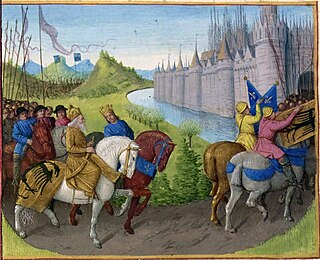
Year 1147 (MCXLVII) was a common year starting on Wednesday of the Julian calendar.
Year 1111 (MCXI) was a common year starting on Sunday of the Julian calendar.

Year 1169 (MCLXIX) was a common year starting on Wednesday of the Julian calendar.
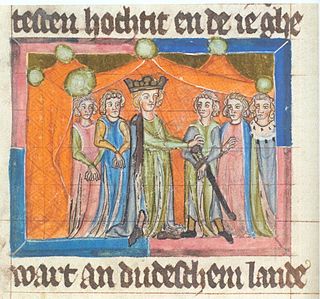
Year 1184 (MCLXXXIV) was a leap year starting on Sunday of the Julian calendar.

The Portuguese conquest of Ceuta took place on 21 August 1415, between Portuguese forces under the command of King John I of Portugal and the Marinid sultanate of Morocco at the city of Ceuta. The city's defenses fell under Portuguese control after a carefully prepared attack, and the successful capture of the city marked the beginning of the Portuguese Empire. Ceuta was held under Portuguese control until being transferred to Spain in 1668.

The Battle of Ourique took place on 25 July 1139, in which the forces of Portuguese count Afonso Henriques defeated those led by the Almoravid governor of Córdoba, Muhammad Az-Zubayr Ibn Umar, identified as "King Ismar" in Christian chronicles.
This is a timeline of notable events during the period of Muslim presence in Iberia, starting with the Umayyad conquest in the 8th century.
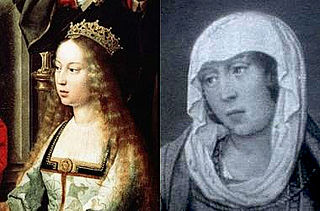
The War of the Castilian Succession was the military conflict contested from 1475 to 1479 for the succession of the Crown of Castile fought between the supporters of Joanna 'la Beltraneja', reputed daughter of the late monarch Henry IV of Castile, and those of Henry's half-sister, Isabella, who was ultimately successful.

Álvaro Vaz de Almada, 1st Count of Avranches was an illustrious Portuguese knight and nobleman, with a long and illustrious career abroad in England. He was invested by the English king, Henry VI as the 1st Count of Avranches and made a Knight of the Garter.
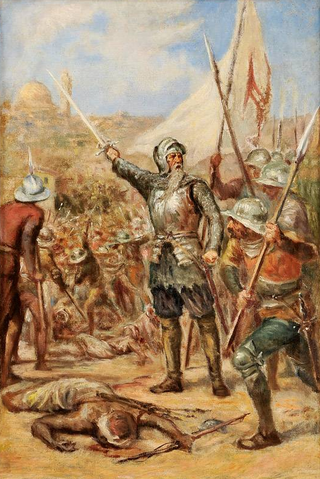
The Capture of Malacca in 1511 occurred when the governor of Portuguese India Afonso de Albuquerque conquered the city of Malacca in 1511.
Vasco Fernades Coutinho was a distinguished Portuguese nobleman, the 3rd Marshal of Portugal and 1st Count of Marialva.

Dom Duarte de Menezes, was a 15th-century Portuguese nobleman and military figure. Duarte de Menezes was the 3rd Count of Viana do Alentejo, 2nd Count of Viana, Lord of Caminha and the first Portuguese captain of Alcácer-Ceguer.
Fernando de Castro was a 15th-century Portuguese nobleman, diplomat and military figure. Fernando de Castro was the 1st Lord of Paúl de Boquilobo. He was a member of the royal council of John I of Portugal, and governor of the household of Prince Henry the Navigator.
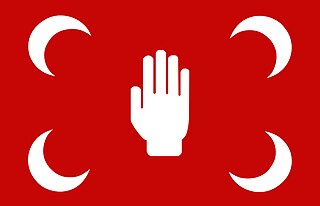
Igawawen or Gawawa, mostly known as Zwawa were a group of Kabyle tribes inhabiting the Djurdjura mountains, Greater Kabylia, in Algeria. The Zouaoua are a branch of the Kutama tribe of the Baranis Berbers.
The Battle of Tangier, sometimes referred to as the siege of Tangiers, and by the Portuguese, as the disaster of Tangier, refers to the attempt by a Portuguese expeditionary force to seize the Moroccan citadel of Tangier and its defeat by the armies of the Marinid Sultanate in 1437.
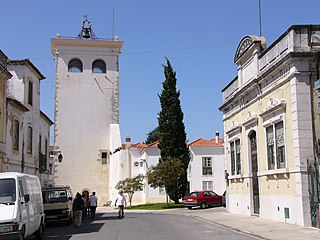
The Castle of Santarém is a medieval castle located in the city of Santarém in the Portuguese county and district of Santarém.
The siege of Tangier (1463–1464) was an attempt by the Portuguese, led by Afonso V of Portugal to capture the city of Tangiers. The expedition ended in failure.













